Notes
Has Disaster Gone Modern? New Years Fire & Fireworks in Dubai
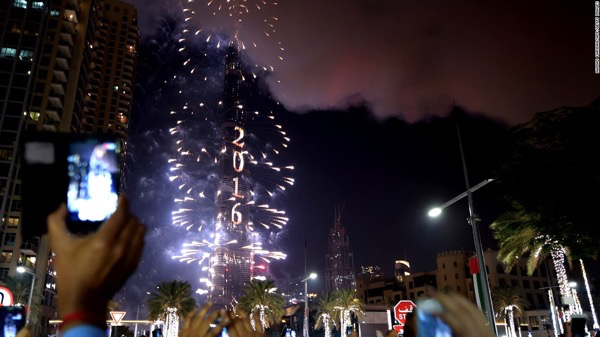
Szczepanski was also setting up a camera to take pictures of the fireworks when he saw the blaze break out.
“All of the sudden, you saw the flames, and everyone was focused, running to try to get a better vantage point,” he said.
Once the fireworks started, he said, he didn’t know where to look.
“I was torn; do I watch the fireworks, or do I continue to watch the fire?” he said.
— from Fire engulfs downtown Dubai’s high-rise Address hotel (CNN)
I’m trying to wrap my head around the strangest phenomenon on New Years Eve.
I’m talking about the coverage of the massive Address Hotel fire in Dubai that evening. Curiously, the disaster happened to coincide with the Emirate’s also massive fireworks display. With the Dubai extravaganza billed as one of the largest, if not the largest New Years fireworks display in the world, securing the photo exposure in the international media (muscling with Sydney, London, Rio, Moscow, etc.) is a big deal.
What was both odd and fascinating was how the two dramas played out together, both discretely and in parallel. In the photo above, we see the hotel burning on the right while the fireworks show surrounds the Burj Khalifa, the world’s tallest building.
From what I could tell, after people were evacuated from the immediate area, no one on the ground let the fire ruin a good time.
Here, for example, we see people, waiting to watch the fireworks, taking in the fire instead.
And media/social media-wise, even more interesting was how the two events formed a modern cable news duet.
So how do we explain the quote above about the journalist, Szczepanski, and even more so, the images from Dubai of the two very dramatic and incendiary events? Is it that the world has reach a new level of fascination with (or addiction to) spectacle? Is it that disasters, unless they are apocalyptic, are quickly scaled in people’s minds — perhaps a trade-off for living in a grander, richer, more technological, more super-sized and more sensational century? Is it because we now live to document and visually share, and what doesn’t kill us give us that-much-better material?
When it comes to any kind of change, especially paradigm shift, what I appreciate is how hard it is to say why. Typically, many factors are in play, some long developing, others surprisingly sudden.
If you remember our post immediately after last month’s terror attack in France, what we found interesting about Alex Majoli’s photo was how the Parisians seemed to refuse to let the event disrupt their way of life. I’m not say westerners (or inhabitants of modern cities everywhere) are coming to see terror attacks as something to take in stride. At the same time, however, perhaps risk recognition, bolstered by a resilience and pride (the Paris attack aimed as much at the bistros and cafe culture) is an increasing attribute of modern, upscale, urban life.
(photos 1 and 3: Karim Sahib/AFP/Getty Images. caption 3: People watch the Address Downtown hotel burning on Thursday after a huge fire ripped through the luxury hotel in Dubai. photo 2: Reuters. caption: The Address hotel in downtown Dubai burns as New Year’s fireworks explode over the Burj Khalifa on Jan. 1. screenshot: CNN)
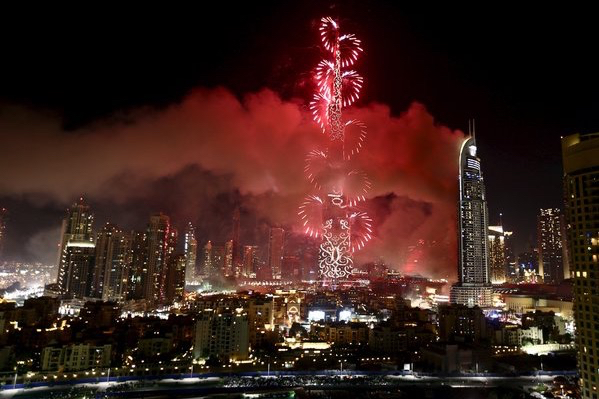
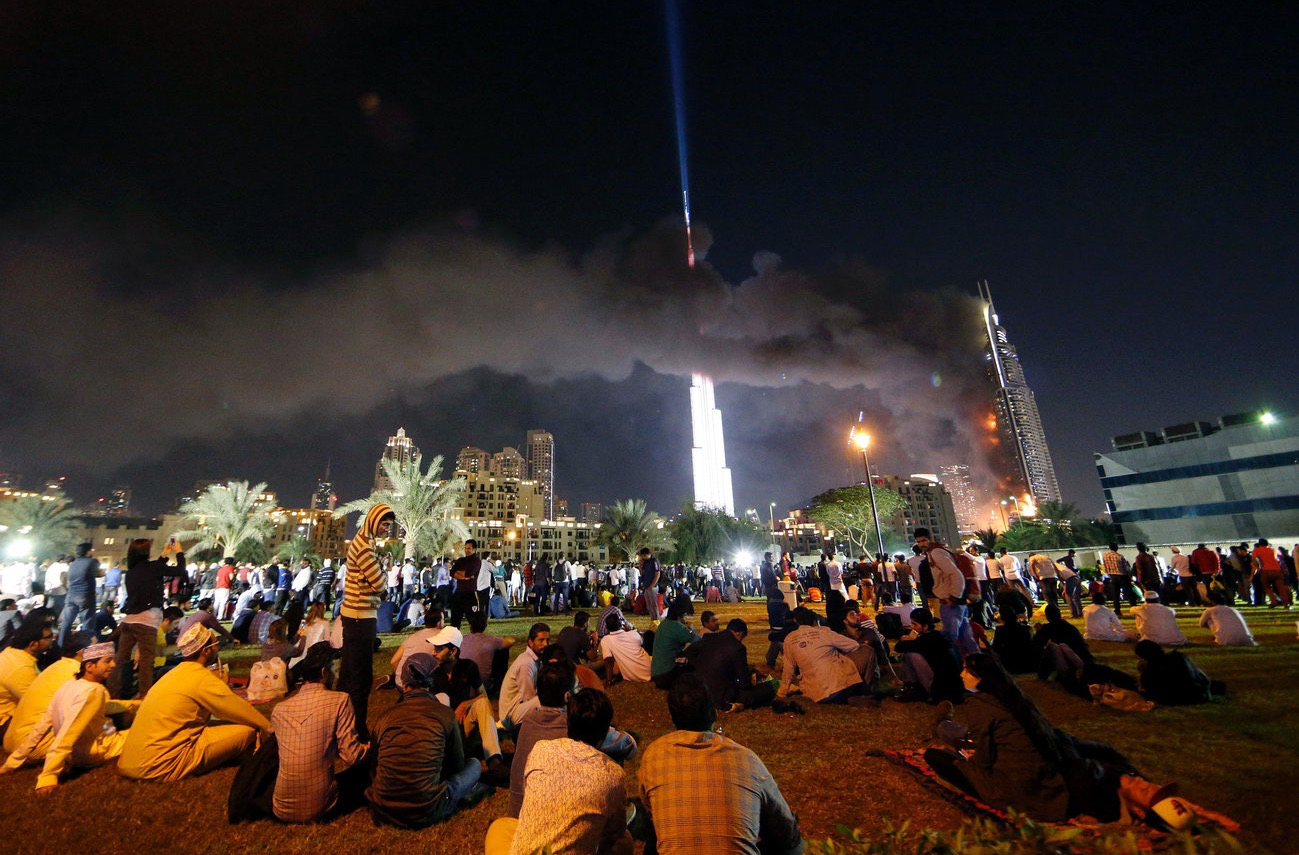
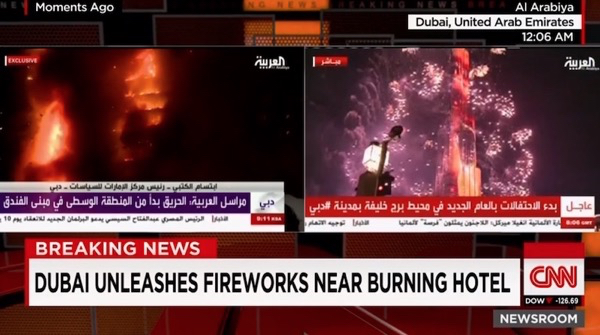
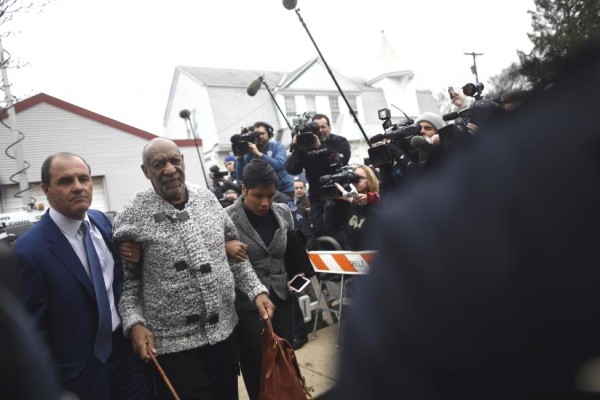
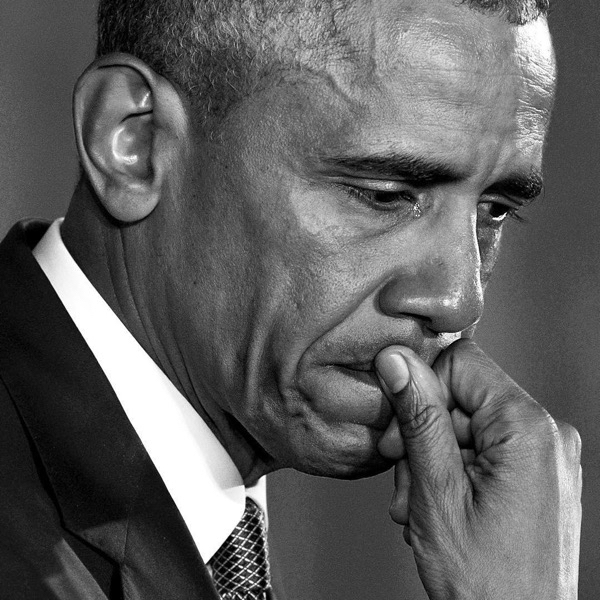
Reactions
Comments Powered by Disqus